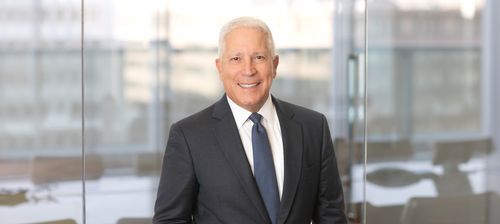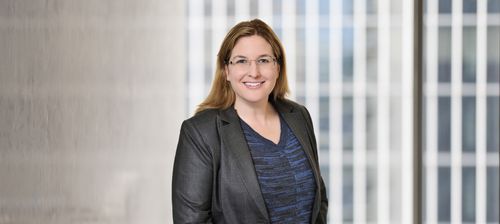News
META Monthly: Renewables Update - March 2019
News
META Monthly: Renewables Update - March 2019
March 2019
A Perspective from the World Future Energy Summit
In this issue of META Monthly, we report back following the World Future Energy Summit (WFES) that took place in Abu Dhabi from January 14th to 17th of this year. We also touch upon developments in the Saudi renewables market in the context of announcements made around the time of the WFES. Our next edition of META Monthly will discuss renewables opportunities in Southern Africa, focusing on Zambia.
January 14th to 17th of this year saw Abu Dhabi host the 12th annual World Future Energy Summit (WFES), an integral part of the much lauded Abu Dhabi Sustainability Week. In terms of its overall coverage, the WFES itself is arguably the most wide-ranging, and some might say all-encompassing renewables event in the META region.
Hosted by the Abu Dhabi Future Energy Company (more commonly known as Masdar), the WFES once again took place at the Abu Dhabi National Exhibition Center. The event brought together in excess of 850 exhibitors from more than 40 countries and more than 4,000 delegates, as well as 15 heads of state and 100 ministers. In addition, the event received over 34,000 visitors, continuing the upward trend in the event’s popularity, being a respectable increase on the previous year’s reported 33,000 attendees.
The WFES is billed by its organisers as “a global platform connecting business and innovation in energy, clean technologies and efficiency for a sustainable future.” It is centered on the following five pillars: Future Summit; WFES Expo; WFES Forums; WFES Initiatives; and WFES Hosted Events. According to the organisers, the scope and format of the event were further developed this year, with the enhancements designed to cater to all aspects of sustainability. Thus, despite the large number of exhibitors (who were able to showcase the latest renewables solutions and innovations, whether in the areas of clean energy, solar, water, eco-waste, or green buildings, to name a few), it is fair to say that the WFES is much more than an exhibition. Rather, the event is deserving of its description as a summit.
Of the exhibitors, notably the event wasn’t just about the “big players.” The range was diverse, with a broad mix of the larger, well-established industry participants along with many of the smaller, more niche players across the renewables and sustainability spectrum. Key U.A.E. government utilities, and other renewables/sustainability-focussed government entities (from the U.A.E. as well as a number of other countries) were also represented. This range certainly gave the impression that the event had something for all.
The WFES Forums
The WFES Forums were particularly informative. Held in dedicated locations within the venue, they included the Solar, Water, EcoWaste, Energy Transition, Green Buildings, Tech for Good, and Mobility Forums, among others. The four days saw a packed schedule of discussions and presentations, with panellists and speakers covering a wide range of current topics and key considerations relative to renewables and sustainability. The forums provided the opportunity to hear and learn about, for example, new infrastructure initiatives, current and anticipated approaches to financing of projects, and trends and opportunities likely to shape the market going forward. A number of the sessions addressed government-focus and drivers with regards to renewables strategy - for example, in the context of water and renewable energy security.
In light of the more recent advancements in the solar industry, and the concurrent hugely increased appetite for the development of solar projects, we were not surprised to note an apparent increased presence of solar exhibitors at this year’s WFES. The Winston team caught up with a number of exhibitor representatives and other delegates at this year’s event. One of those was Massimiliano Vernaleone, the GCC Area Manager Partner from international solar power company, Enerray S.p.A., an Italian EPC contractor with a branch office and a team in Dubai, that is active in the design, construction, and management of utility-scale and industrial photovoltaic systems. When asked by the Winston team members for his impression of this year’s WFES, Massimiliano was unsurprisingly up-beat, commenting that: “This year’s summit has been very impressive. It is excellent to see the all-encompassing nature of the event with international companies from all areas of the renewables and sustainability sector. And, we are particularly satisfied as we were able to sign a MOU with a Saudi strategic partner right at Enerray’s booth during the event. In general, and as a solar developer, we are hugely encouraged by the strong focus on solar development in the Gulf and believe the future looks very strong for our business and the energy sector as a whole.”
We certainly agree with Massimiliano’s sentiments, as the summit was about much more than just solar, as important as that area is in itself.
Youth Participation
What is also commendable about this event is that it is not just for policy-makers, industry leaders, investors, experts, academia, intellectuals and the like, as it embraces and makes a concerted effort to encourage the involvement of the next generations. This is demonstrated, for example, by the Young Future Energy Leaders (YFEL) initiative, which also features as an element of the summit. The YFEL is a Masdar-led initiative, and is committed to raising awareness and engaging students and young professionals in the renewable energy and sustainability fields. The opportunity to take part and learn was clearly not missed, as it was not an unusual sight to witness large groups of school students engaging with exhibitors and other participants at this year’s WFES. In fact, the overall student attendance was estimated by WFES to be 3,000.
Key Announcements
A noteworthy unofficial “feature” of the WFES and of the Abu Dhabi Sustainability Week is that they tend to coincide with a number of significant renewables and/or sustainability-related announcements from governments, in particular, from across the META region. By way example, during the 2018 WFES, approximately USD 15 billion worth of projects were announced, including Abu Dhabi’s USD 1.2 billion Taweelah reverse osmosis project, nine solar projects that had been signed across five countries, and a total of USD 7 billion worth of renewable projects in Saudi Arabia.
The 2019 Summit was no different. First, WFES 2019 saw the announcement and release of a number of sustainability reports and white papers, one example being the International Renewable Energy Agency (IRENA) issued “GCC Market Analysis 2019 Report.” This report includes an analysis of the GCC’s current and future renewables pipeline and considers those pipeline projects in the context of the GCC’s climate change commitments.
In terms of actual deals signed during or around the time of this year’s WFES, it is estimated that total deal value amounted to approximately USD 11 billion over the course of the week, and involved 20 countries. Deals or initiatives announced include:
- Sustainable solid waste collection and cleaning services contracts amounting to almost USD 300 million, announced by the Abu Dhabi Waste Management Center;
- A memorandum of understanding between DEWA and Siemens to pursue joint R&D activities in sustainable energy technologies, including smart grids and energy storage systems;
- Solar Energy Corporation of India’s plans for its USD 7 billion Cold Desert Regions Ultra-Mega Solar Power project; and
- A partnership between Abu Dhabi National Energy Company PJSC (commonly known as TAQA) and Swiss technology company LakeDiamond to utilise photovoltaic cells and power-beaming technology to reduce energy production costs in TAQA’s core markets.
Saudi Arabia also featured prominently amongst the headline announcements. One highlight was the announcement of the successful bid by a consortium led by Masdar and France’s EDF to build the USD 500 million 400 MW Dumat Al Jandal wind farm in northern Saudi Arabi—the country’s first utility-scale wind farm, which will generate power for up to 70,000 Saudi households when complete.
Another particularly significant announcement was the confirmation that Saudi Arabia intends to develop capacity to enable it to produce 60 GW of renewable energy by 2030, with 40 GW to be generated from solar energy, and 20 GW from wind and other sources. This follows on from the creation of the Renewable Energy Project Development Office (REPDO), overseen by the Kingdom’s Ministry of Energy, Industry & Mineral Resources, to lead the National Renewable Energy Programme (NREP). The Dumat Al Jandal wind farm is the second project contract to be awarded under the new NREP—the first being the Sakaka 300 MW solar PV power plant, which was awarded to AWCA Power last year.
Looking to the immediate future (and as also announced this past January), REPDO anticipates tendering 11 solar projects for 2,225 MW and an 850 MW wind project during the course of 2019. Since that announcement, movement has already been seen, with REPDO launching seven of the mooted 12 projects, for a combined capacity of 1,515 MW.
Added to this, Saudi Arabia has been particularly active in the water sector. Since the start of the year, Saudi Arabia’s Water & Electricity Company has launched or signed a number of projects, including the Taif independent sewage treatment project (ISTP) (for which 66 expressions of interest were received), as well as the Jeddah Airport 2 ISTP (with the Marafiq-led consortium having signed the concession and offtake agreement at the very end of February), which project will be implemented over two phases to ultimately provide a combined treatment capacity of approximately 500,000 m3 per day.
Certainly what can be deduced from the most recent news and activity from Saudi Arabia, coupled with the success of the WFES and Abu Dhabi Sustainability Week, is that the start to the year 2019 has been a positive one in the renewables area for a whole host of countries in the META region and beyond.
WFES’s ability to promote and foster sustainable solutions for our energy, water and waste needs in the META region is unparalleled. On the back of the numerous project announcements and renewed positivity in the market we are looking forward to a busy year ahead and also to seeing you at next year’s WFES in Abu Dhabi.


